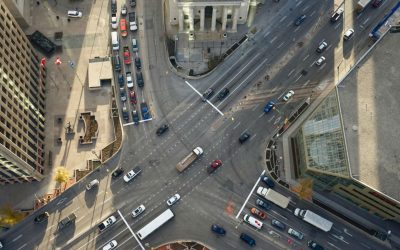They are now the most powerful lobbying force in the land. You can see the results of their campaigns on park benches, on street corners, on station platforms – and now their hectoring signage is sprouting on desolate beaches and once unspoilt stretches of moorland. They are more energetic than the RSPCA. They are more effective than the birdwatchers, the child‑protectors and the petrolheads put together. Indeed, for manic dedication they are only rivalled by Fathers4Justice. Ladies and gentlemen, let’s have a big hand for this year’s winner of the prize for the Most Successful Special Interest Group. I give you – the Royal Society for the Extremely Stupid.
It was some years ago that my daughter and I first became aware of their achievements. We were exploring the magical cliff-top castle of Tintagel and we came across a sign on the edge of the cliff. It was expensively hand‑painted and about 1ft high. It said: “Edge of cliff”. As a statement of the plonkingly obvious, it could have been bettered only if there had been another sign with a vertical arrow saying “Sky”. We laughed so much we almost fell off.
Since then, the Royal Society for the Extremely Stupid has been going from strength to strength. It has adorned the back of peanut packets with signs saying “May contain nuts”; it has embossed every plastic coffee sipper-lid with the information that the contents may be hot; and now, according to a wonderful pamphlet issued by the Manifesto Club, its activities are reaching a climax. I could direct you to a lovely pebble beach in Sussex, where visitors are warned with a hideous bright yellow sign and a pictogram of a man falling over that there is an “uneven surface”. Another pictogram, complete with another tumbling idiot, warns that the beach may have a “slippery surface”. Cor! I can just about see the case for warning railway passengers that if they run on a marble station concourse, and that concourse is wet, then they may be at risk of slipping.
But we are talking about a beach in Sussex. How dur-brained do you have to be to fail to grasp that pebble beaches are uneven and may be slippery? You might as well post a sign at the gates of the Vatican saying: “Caution: Pope at work”. Or I could show you a park bench in London boasting an exclamation mark in a fluorescent yellow triangle and the warning, “May become wet”. You don’t say! A bench in London may become wet, the public is told. I wonder whether we are doing enough to alert people to this fact, that it is raining in London on average 6 per cent of the time. Perhaps we should have a giant sign at Heathrow saying: “Welcome to Britain – danger of moderate precipitation”.
Then there is the deranged yellow sign in a Tooting cemetery warning visitors not to fall into open or sunken graves, and that disintegrating gravestones and other memorials may prove lethal to the bystander. But the all-time triumph of the Royal Society for the Extremely Stupid – the sign that clinched it for them at this year’s awards – was a big road sign that went up in Swansea. The English version said that this was a residential area and there was no entry for heavy goods vehicles. But it was the Welsh translation that represented a masterpiece of Extremely Stupid lobbying. This read: “Nid wyf yn y swyddfa ar hyn o bryd. Anfonwch unrhyw waith i’w gyfielthu.” It was a few months before someone had the nerve to point out that this gnomic message meant: “I am not in the office at the moment. Send any work to be translated.”
In that magnificent story – of how Swansea council managed to put up a Welsh out-of-office autoreply, in the belief that it was something to do with heavy goods vehicles – there is much to be learnt about modern Britain. But I single out that incident today because it so perfectly illustrates the unthinking way in which we erect street furniture. We pollute our landscape with signs and clutter of all kind, when they may have nil semiotic value and do nothing for “elf and safety”.
People often ask me why there are so many traffic lights, and why they seem to spend such an unconscionable time on red. The answer is that there has indeed been a huge expansion of traffic lights in the past 10 years, and each one generally represents the culmination of some campaign.
Typically, there will have been an accident, and local campaigners will get together with families of the victims to demand a solution. In these circumstances, it is very difficult for local politicians to resist. On the contrary, the overwhelming temptation will be to “do something”. And though a plausible case can be made for each intervention, the cumulative effect can be counterproductive.
Again, we have been going through a long period in which lobbyists have demanded that pedestrians be segregated from the streets with big steel railings; and though this may seem sensible in some ways, the railings produce perverse results. They add greatly to the hassle of getting around on foot. They make the streets less permeable to pedestrians – and by doing their bit to discourage walking, they may even be encouraging a fatal rise in obesity.
In any case, they are certainly a serious health hazard for cyclists, who are in danger of being crushed or scraped against them by vehicles. The same point can be made about some of the forest of black-poled signs that we allow to sprout in our paths, overloading us with non‑information and creating a new collision risk to those who use the streets.
Of course, there is a balance to be struck, and the interests of the blind must be protected; but people are increasingly frustrated with pointless street clutter, and are ready to go back to common sense. That is why many London boroughs are now actively looking at removing traffic lights, and that is why we in City Hall are pursuing urban-realm projects to end the bossing and restore freedom of movement.
In the meantime, if you have any more examples of the work of the Royal Society for the Extremely Stupid, I am all ears.


